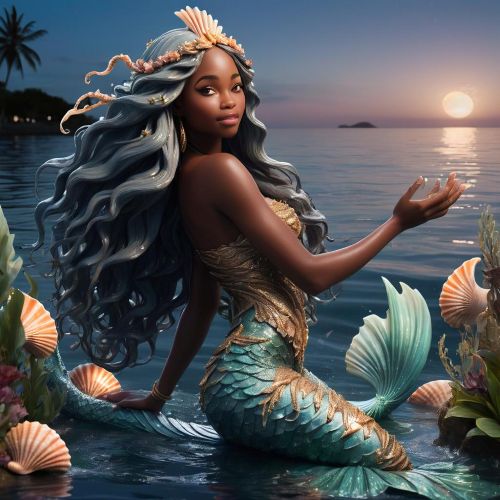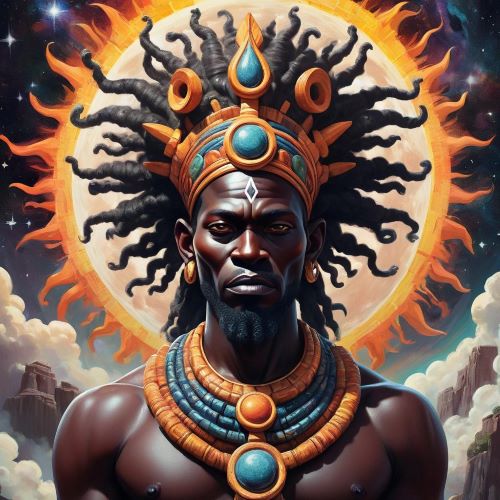Mbundu Mythology
Mbundu mythology, rooted in the traditions of the Kimbundu-speaking people of Angola, is a captivating reflection of how spiritual beliefs and cultural practices intertwine with daily life. At its heart, this mythology is deeply connected to the natural world, where rivers, forests, and the sea are not only sources of sustenance but also sacred spaces inhabited by divine beings. Central figures like Kianda, the goddess of the sea, embody this spiritual connection, offering protection to fishermen and blessings of abundance to coastal communities. Myths and oral traditions were passed down through generations, blending reverence for ancestral spirits with a belief in powerful deities who influenced every aspect of life, from fertility and agriculture to health and weather patterns.
The spiritual framework of Mbundu mythology is closely tied to the concept of balance and harmony between humans, nature, and the spirit world. Ancestors play an essential role as intermediaries between the divine and the living, guiding families and communities through rituals and ceremonies. These ancestral spirits, along with deities like Kianda, serve as protectors and enforcers of moral codes, ensuring that communities remained respectful of natural resources and each other. This worldview not only reinforced cultural identity but also preserved ecological balance, as mythological teachings emphasized respect for the environment. Mbundu mythology thus became both a spiritual guide and a practical system of values that ensured survival and cohesion.
Stories from Mbundu mythology are rich with symbolism and continue to echo in cultural expressions such as dance, song, and traditional rituals. Festivals dedicated to deities like Kianda often involved offerings at rivers or coastal waters, expressing gratitude and seeking blessings. Oral storytelling preserved tales of heroes, spirits, and divine interventions, offering moral lessons and strengthening cultural bonds. These myths were not just entertainment; they were essential tools for education, transmitting wisdom to younger generations in a form that was memorable and meaningful. Even today, echoes of these traditions remain in Angolan culture, influencing music, art, and community practices that honor both heritage and spirituality.
In modern times, Mbundu mythology continues to hold cultural significance, even as Angola undergoes rapid social and political change. The figure of Kianda, for example, has transcended mythology to become a symbol of cultural pride, celebrated in festivals and recognized as part of Angola’s intangible heritage. Artists, writers, and cultural activists often draw upon Mbundu mythology to reconnect younger generations with their roots, ensuring that these ancient stories are not forgotten. By linking ancestral wisdom with contemporary identity, Mbundu mythology remains a powerful reminder of the enduring human need to find meaning, balance, and belonging in the world. For those seeking to understand Angolan culture, exploring Mbundu mythology offers a profound window into the values, traditions, and spiritual imagination of its people.




